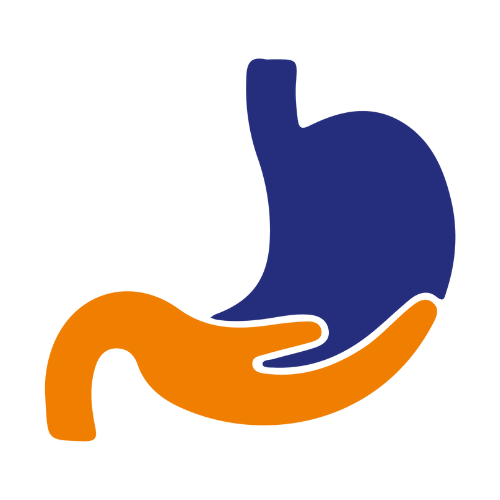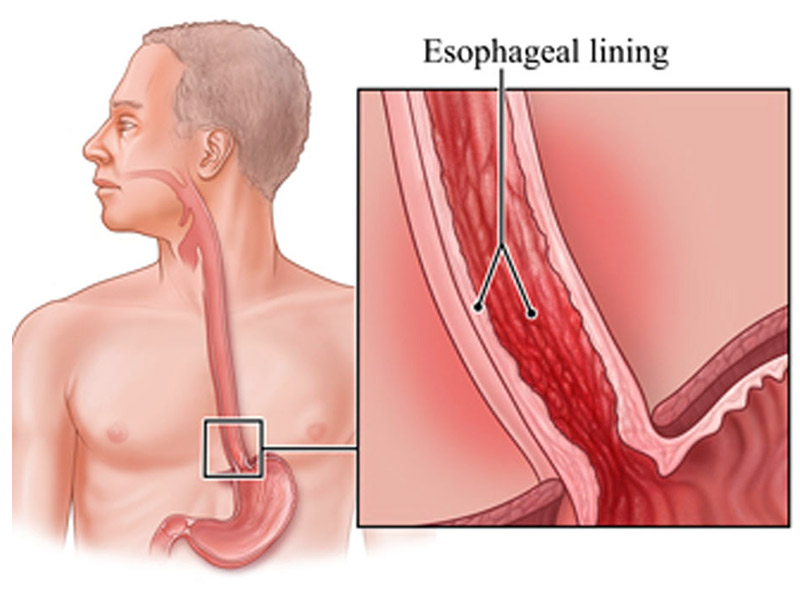Esophagitis
Esophagitis is an inflammation (swelling) of the lining of the esophagus, the tube that connects the throat to the stomach. If it is not treated, esophagitis can become very uncomfortable, causing difficulty in swallowing, and ulcers or scarring of the esophagus.
What are the Symptoms?
Symptoms of esophagitis include:
- Difficult and/or painful swallowing
- Heartburn
- Acid regurgitation (bringing food back up to the mouth from the stomach)
What are the Causes?
Esophagitis is an irritation of the esophagus caused by any of the following:
- A backflow of acid fluid from the stomach to the esophagus (GERD)
- Vomiting
- Medications such as aspirin and anti-inflammatories
- Viruses, fungi, bacteria, or diseases that weaken the immune syste
How is it Diagnosed?
Once your doctor has performed a thorough physical examination and reviewed your medical history, there are several tests that can be used to diagnose esophagitis. These include:
Endoscopy: A long, flexible lighted tube called an endoscope is used to look at the esophagus.
Biopsy: A small sample of the esophageal tissue is removed and sent to a laboratory to be examined under a microscope.
Barium X-ray: X-rays are taken of the esophagus after the patient drinks a barium solution. Barium coats the lining of the esophagus and is visible on X-ray. This enables doctors to view abnormalities of the esophagus.
What are the Risk Factor?
If left untreated, GERD can lead to other serious medical conditions such as:
- Inflammation of esophagus also known as esophagitis
- GERD can lead to Narrowing of esophagus known as esophageal stricture
- Barrett’s esophagus is a condition in which abnormal changes occur in the cell lining of esophagus, eventually leading to esophageal cancer
- GERD can lead to a range of respiratory disorders owing to stomach acids flowing back into lungs. Some of the problems may include asthma, pneumonia & congestion
How is it Treated?
Treatment for esophagitis depends on the type of esophagitis you have.
Reflux esophagitis is when the contents of your stomach back up into your esophagus.To treat this, you might use:
- Over-the-counter drugs like antacids, or medications that block acid production like lansoprazole (Prevacid) and omeprazole (Prilosec).
- Prescription drugs that can block acid production or help clear your stomach
- Surgery to strengthen the valve that separates your stomach and your esophagus
Eosinophilic esophagitis is when a large number of white blood cells called eosinophils come together in your esophagus. Usually, this happens because of an allergy.To treat this, you might take:
- Prescription medicines to block acid production
- Your doctor may also suggest an elimination diet. This is where you stop eating common food allergens for a while, then slowly add them back in. This can help you and your doctor figure out which foods might cause your esophagitis.
Drug-induced esophagitis happens when medicines touch the lining of your esophagus for too long. For this, your doctor might:
- Change your medication
- Give it to you in liquid form, if possible
- They might also advise you to take your medicine with a full glass of water or ask that you stand or sit for at least 30 minutes after you take it.
Infectious esophagitis happens when the tissues of your esophagus are infected. This can happen if you have cancer or HIV. To treat it,
- You’ll take a medication to clear up your infection.
- If your esophagus is very narrow or food is stuck in it, your doctor may perform a procedure called esophageal dilation, which will expand your esophagus.

